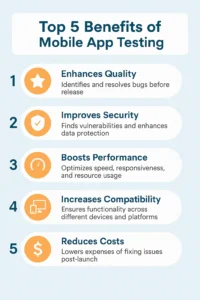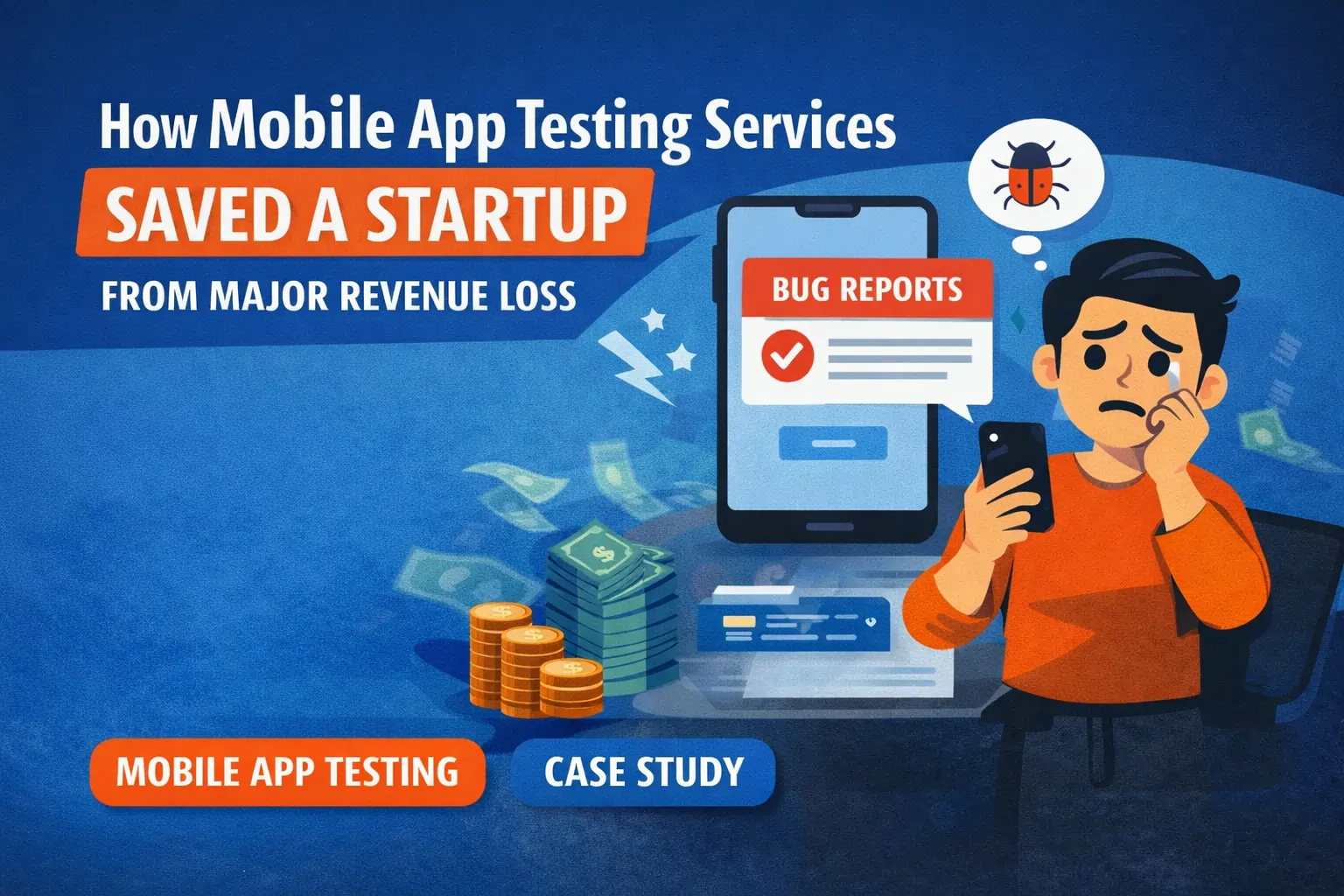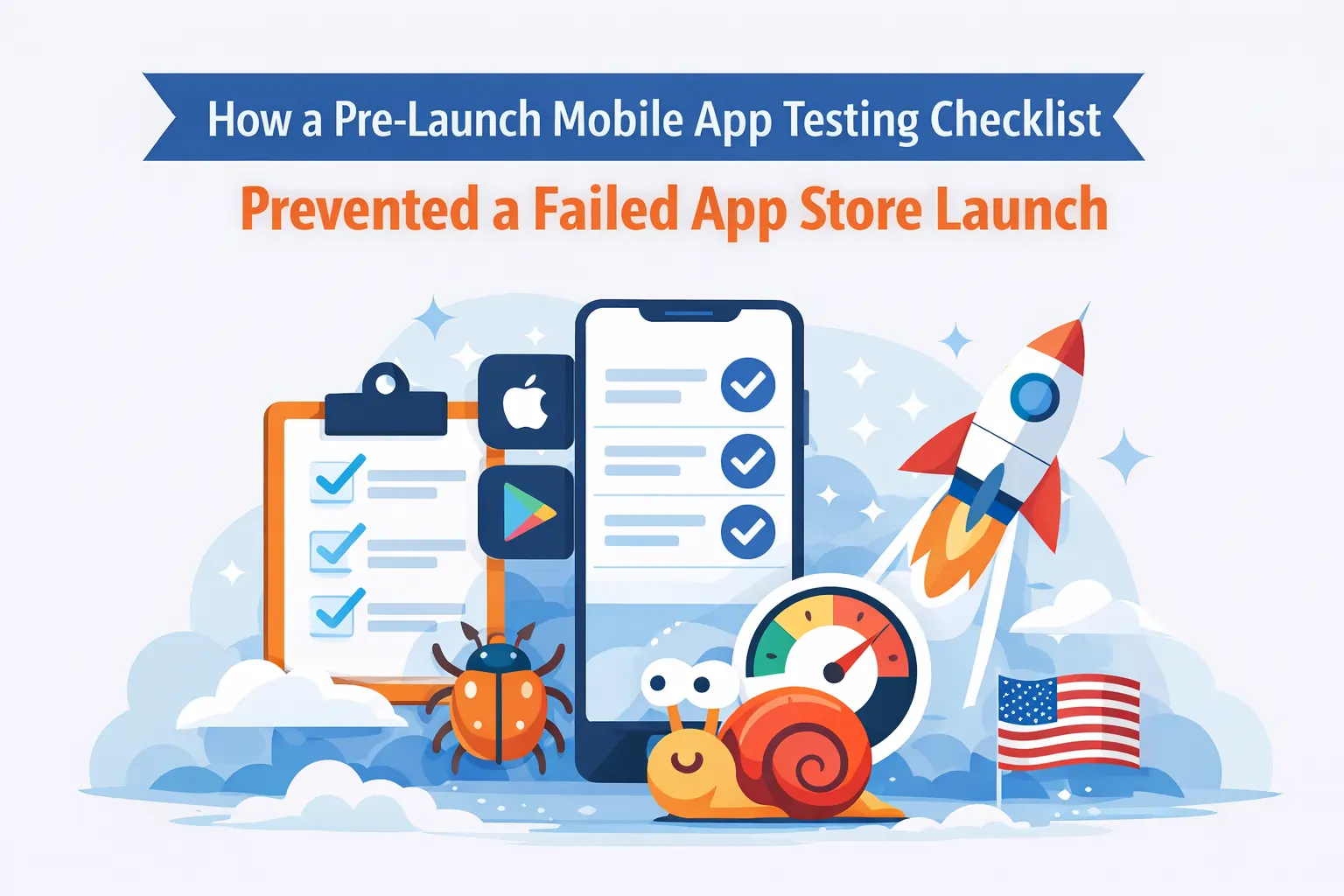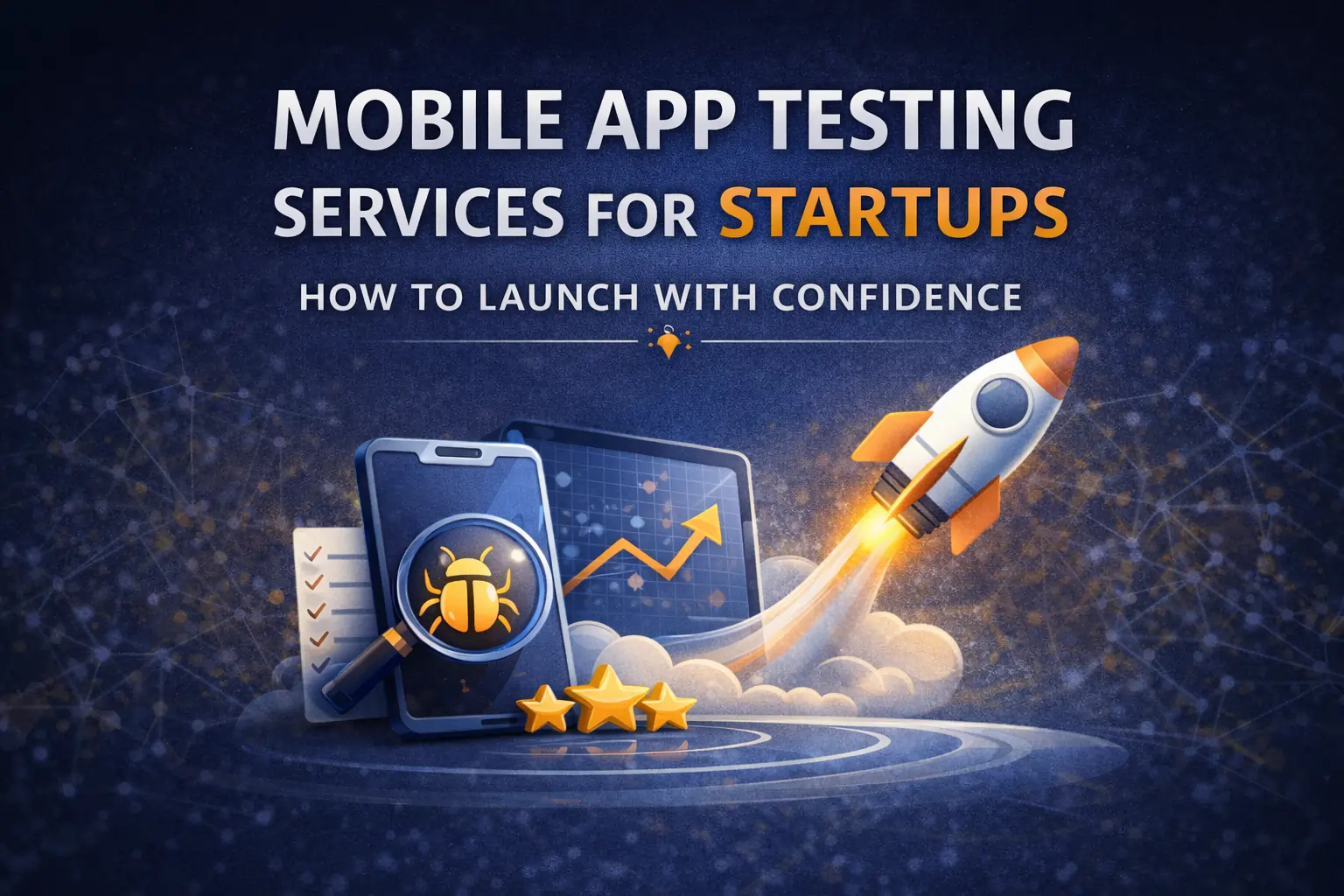Mobile App Testing Services in 2025: Proven Results From 500+ Projects
Why Mobile App Testing Services Are Essential in 2025
In today’s app economy, a seamless user experience is no longer optional—it’s expected. With over 52,000 apps released on Google Play every month, standing out requires more than great design or innovative features. What truly separates successful apps from abandoned ones is reliability. Crashes, slow performance, or poor usability can quickly lead to negative reviews and uninstalls.
At Testers HUB, we specialize in end-to-end mobile app testing services that ensure your application performs flawlessly on both iOS and Android devices. Whether you are preparing a fintech solution, a healthcare platform, or a global consumer app, our QA team provides the real-device coverage, performance insights, and usability testing needed to help your app succeed worldwide.
Need expert testing before launch?
The Business Case for Mobile App Testing
Research shows that 88% of users uninstall apps due to bugs, and 71% uninstall within 30 days if the app fails to meet expectations. Poor app performance directly impacts:
- User Ratings → Apps with crash-free rates above 99.8% consistently achieve 4.5+ stars, while lower stability leads to 3 stars or below.
- Revenue Growth → Post-launch bug fixes cost up to 5x more than catching issues during pre-release QA.
- Brand Trust → A single bad review can discourage thousands of potential downloads.
This is why mobile app QA testing is not just a technical step—it’s a business-critical investment. By partnering with an experienced mobile app testing company, you prevent costly failures and increase retention.
Challenges of Testing iOS and Android Apps
Both platforms have unique challenges that demand specialized QA strategies:
- Android App Testing Services → With thousands of devices, screen sizes, and OS versions, Android testing must cover fragmentation risks, battery optimization, and network variability.
- iOS App Testing Services → Apple’s strict guidelines demand precision. From App Store compliance to device-specific bugs (e.g., Face ID, gesture navigation), iOS QA ensures smooth approval and launch.
See how testing costs compare across stages in our Mobile App Testing Cost Breakdown guide.
Case Study 1: FinTech App – U.S. Market
A U.S.-based fintech startup approached Testers HUB to test their investment and digital wallet app before launch.
- The Challenge: Security vulnerabilities, inconsistent transaction flow, and crashes on older Android devices.
- Our Testing Approach: Conducted penetration testing, functional checks on 40+ devices, and payment flow regression testing.
- Results: Reduced crashes by 92%, improved load speed by 40%, and helped the app achieve a 4.6-star App Store rating within 3 months.
This success proved that fintech apps demand deeper QA coverage across security, compliance, and real-world user flows to win user trust.
Case Study 2: Healthcare App – UK Market
A UK-based healthcare platform required mobile app testing services for its patient management and telemedicine app.
- The Challenge: Ensuring HIPAA/GDPR compliance, video consultation stability, and accessibility for patients with disabilities.
- Our Testing Approach: Focused on compliance QA, usability checks, and accessibility testing across multiple iOS devices and iPads.
- Results: Achieved 100% compliance readiness, 99.9% uptime during video sessions, and improved patient onboarding flow by 35%.
This highlighted the importance of mobile app QA in regulated industries like healthcare, where trust, privacy, and accessibility are non-negotiable.
Ready to secure your healthcare or fintech app?
How We Test Mobile Apps: Our Proven QA Process
At Testers HUB, we follow a structured QA methodology that blends manual, automated, and exploratory testing.
- Requirement Analysis → Define platforms, devices, and user flows to test.
- Test Planning → Prioritize scenarios based on user impact.
- Test Execution → Combine manual testing with automated frameworks (Appium, Selenium).
- Bug Reporting → Provide detailed logs, screenshots, and videos for developers.
- Re-Testing & Regression → Verify fixes and ensure no new issues are introduced.
This process ensures your app is stable, compliant, and optimized for performance before it reaches users.
AI-Powered Mobile App QA: The Future of Testing
In 2025, AI is transforming how QA teams identify and resolve bugs. At Testers HUB, we integrate AI-powered QA and automation into our testing services.
- Faster Defect Detection → AI-driven analytics help spot anomalies in real-time during testing sessions.
- Regression Automation → Automated scripts run continuously to check updates and prevent rollbacks.
- Performance Insights → AI tools simulate heavy loads, predicting crashes before they occur.
By combining AI-driven automation with human QA expertise, we deliver shorter testing cycles, lower costs, and more accurate results.
Why Choose Testers HUB for Mobile App Testing?
What sets us apart is not just tools—it’s our end-to-end QA expertise:
- ✅ Experience with 500+ mobile app projects across finance, healthcare, gaming, and eCommerce.
- ✅ Real device lab with 50+ iOS and Android devices.
- ✅ Specialized in iOS app testing services and Android app testing services.
- ✅ Flexible QA models: hourly, sprint-based, or full-cycle retainers.
- ✅ Proven record of increasing app store ratings and retention rates.
Conclusion
The success of your app depends on more than just development—it hinges on quality testing. In an ecosystem where users delete apps within minutes of encountering bugs, mobile app QA is your safety net. At Testers HUB, we don’t just run checklists—we dive deep into iOS and Android testing, performance validation, and user-centric QA to help you deliver an app that earns trust from day one.
Whether you’re launching a fintech product, a healthcare app, or the next big consumer platform, our end-to-end mobile app testing services ensure stability, security, and seamless performance. With real-device coverage, AI-powered bug detection, and global experience, we help your app rank higher, retain users longer, and convert better.
❓ FAQ – Mobile App Testing Services
Q1. How early should mobile app testing begin?
Testing should start as soon as you have a working build. Early QA catches critical issues before they become expensive fixes, reducing both time and cost.
Q2. Do you test only on emulators or real device
We test on real iOS and Android devices alongside emulators. Real-device testing is essential for detecting hardware quirks, battery performance issues, and network variability that emulators can’t replicate.
Q3. How do you handle iOS app testing differently from Android?
iOS testing focuses on App Store compliance, device-specific bugs, and UI consistency across iPhone/iPad models. Android testing requires broader device and OS coverage to handle fragmentation. Our strategies are tailored for each platform.
Q4. What industries do you cover for mobile app QA?
Beyond consumer apps, we specialize in fintech, healthcare, fitness, eCommerce, and enterprise apps, ensuring compliance, usability, and performance standards are met for each sector.
Q5. How do you price mobile app testing?
We offer flexible packages—hourly, sprint-based, or monthly retainers—so you can scale testing as per your budget and development phase. For detailed insights, check our Mobile App Testing Cost Breakdown.











